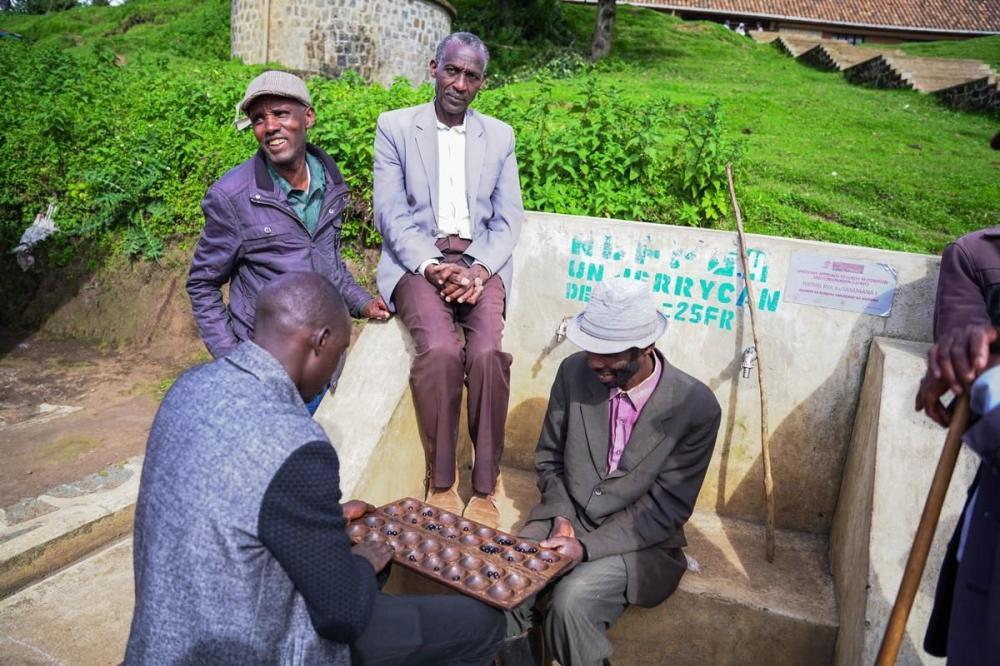Africa-Press – Rwanda. While many traditional Rwandan games have faded away, they once played an important role in people’s lives, helping them socialize, sharpen their minds, stay physically active, improve blood circulation and prevent diseases to mention a few.
Today, there is a growing interest in reviving these games.
Although most of these games are no longer commonly played, historical museums in Rwanda still preserve them. Children who are fortunate enough to visit heritage museums are shown how these games were played and learn their cultural significance to Rwandans.
Playing these games is far more beneficial to children than spending long hours watching television. It also promotes social interaction among children and helps them discover traditional games from the past.
Here’s top 10 Rwandan traditional games:
Guhana Ubute
This game is usually played by children, where they run and chase each other. The one who starts touches another player and passes on the ubute, translated to as “Laziness”.
The person who receives it then does their best to touch someone else and pass it on. The game continues like that, and the person left with ubute at the end is considered to have “slept with it,” which often brings them shame or embarrassment. That’s why they try harder not to lose the next time.
Igisoro
Igisoro is one of Rwanda’s oldest traditional games. It’s typically carved into wood or molded, though children often play it by digging holes in the ground. The board has two rows of sixteen holes, called icuba, totaling thirty-two.
Two players compete using sixty-four stones, commonly referred to as inka (cows) or imbuguzo. The goal is to capture all of your opponent’s cows.
The gameplay involves strategy and arithmetic skills, as players must count both their own and their opponent’s pieces carefully to avoid losing them. The act of playing Igisoro is also known as Kubuguza, a game that sharpens critical thinking and counting abilities.
Gusimbuka Urukiramende
Normally, Urukiramende is made with three sticks—two vertical posts and one crossbar. Players take turns jumping over it, and when someone fails to jump over the crossbar, they say that he “pooped over it.”
The jumpers continue raising the bar higher, and each stops when they can no longer jump over it. This game was especially loved by youth because it was fun and showed who had real physical strength.
Sebutimbiri
This is a game where one jumps over a series of inkiramende (jumping bars) with both feet lifted at once. When people played Sebutimbiri, they arranged up to six inkiramende in a row and jumped over them in succession.
These inkiramende were usually very low, about fifty centimeters high, and if someone failed to jump even one, they were considered to have lost.
Gukirana
Gukirana is a game played by two people who hold each other around the waist and wrestle without hitting one another. The winner is the one who manages to throw the other person to the ground.
Kunyabanwa
This was a traditional warrior-style game played by herders who competed over water spots where cows would drink. The game involved using sticks to determine who would dominate and allow their cows to drink first.
Intembe
Intembe is a game involving a circle cut from a banana tree trunk, designed with a hole in the middle for aiming. Players used bows and arrows made from sisal and stood in line preparing to aim through the hole.
One person would roll the intembe forward, and the player who successfully shot an arrow through the hole while it was moving would score a point. Then others would take turns competing in the same way.
Kumasha
Kumasha is a game of precision shooting. Players would gather in a clear area with bows and arrows (impiru) and pick a target to aim at.
This activity was also called “shooting the target.” Some preferred using a banana stem as the target. The game helped youth develop accuracy and aiming skills, useful in hunting or combat situations.
Kwiyasira
This was practiced by Rwandan ancestors during hunting games. It was a traditional activity where elders hunted wild animals, and through that hunt, they could obtain food, clothing, and other necessities.
It was not only seen as a game but also as one of the earliest professions practiced by ancient Rwandans before they learned farming and animal husbandry.
Gusimbuka umugozi
In this game, two children stand on opposite sides holding a rope, which they swing in a circular motion. One child jumps over the moving rope, trying not to step on it or miss a turn. Sometimes, another child joins in, and they jump together in sync.
For More News And Analysis About Rwanda Follow Africa-Press






